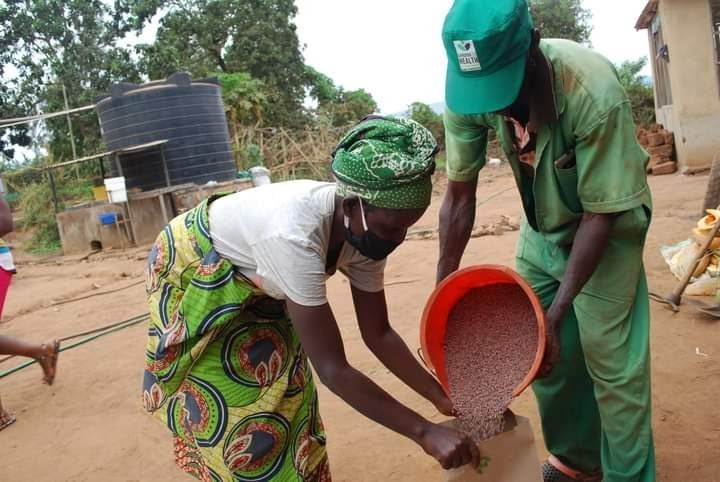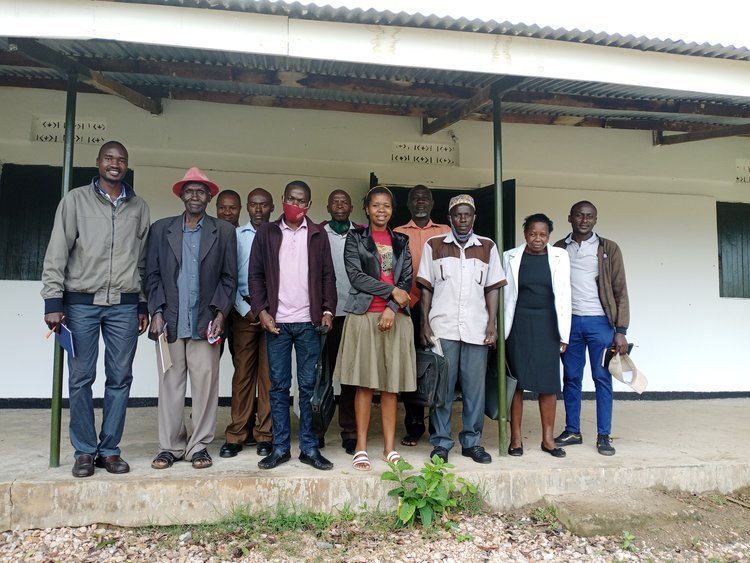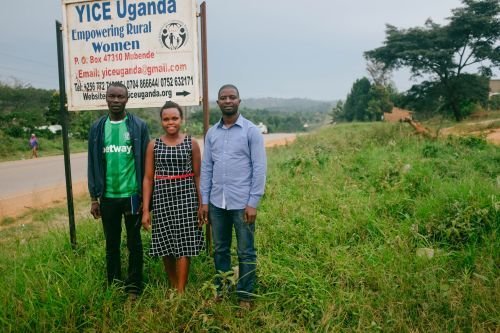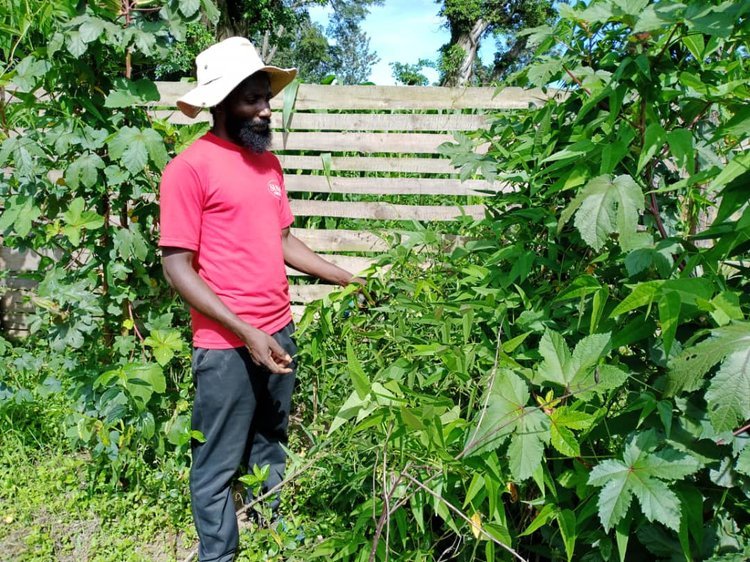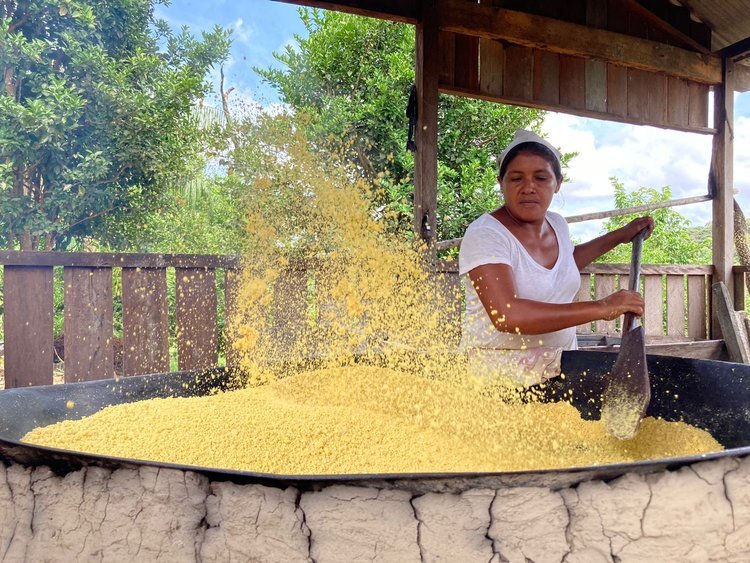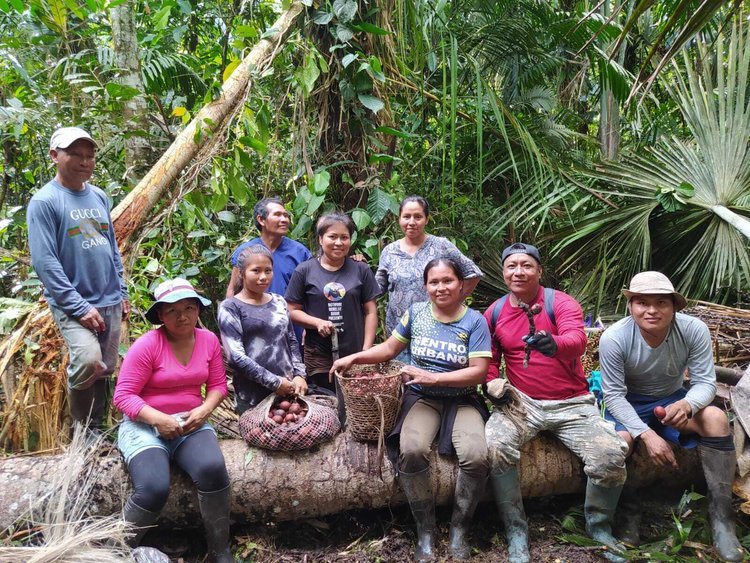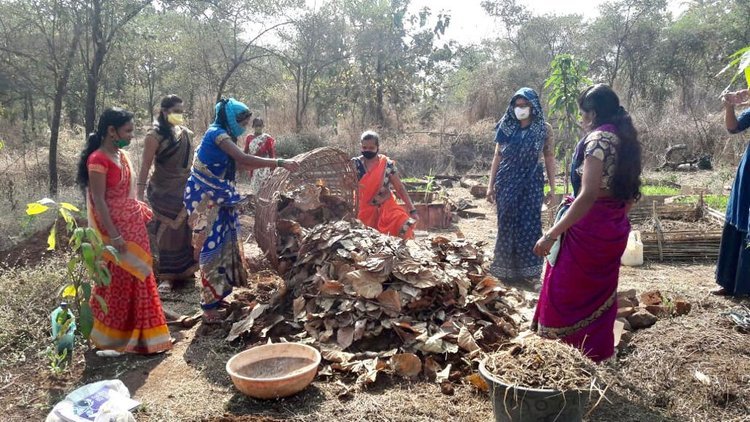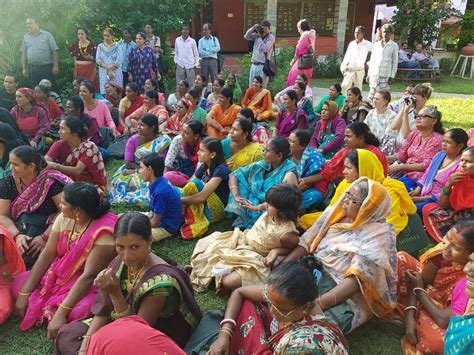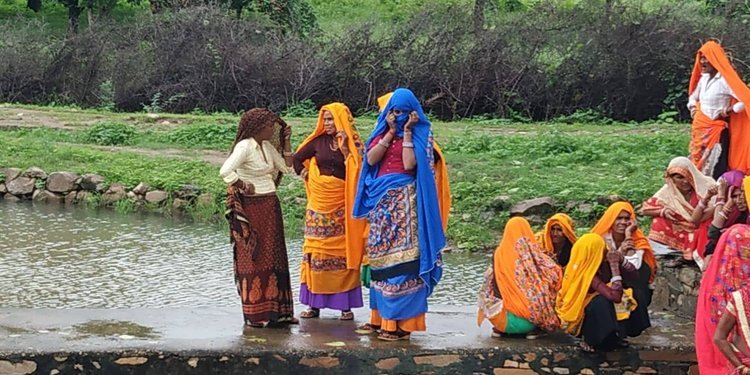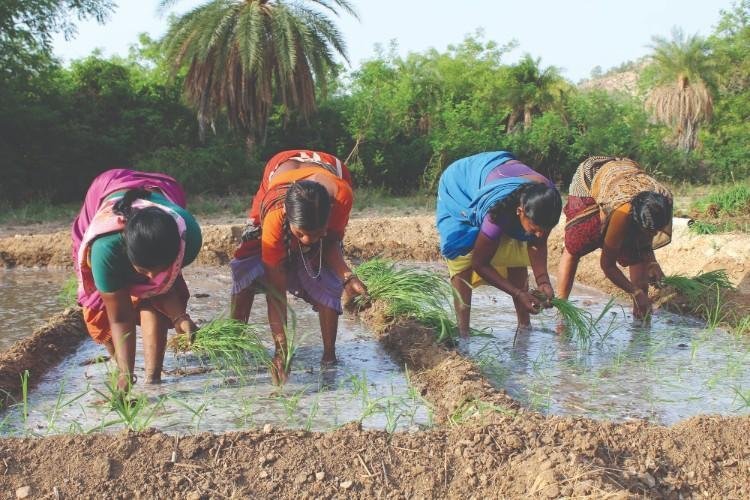2021-2023 Blossom Partners
Africa
-
Gardens for Health International is influencing the livelihoods of women in their community that is trained by the farm and increasing capacity in regenerative farming practices by scaling their demonstration farm as the center for excellence. They are building the farm's ability to promote indigenous seed saving, sovereignty and development. And strengthening their partnerships with Universities, government and communities members by sharing their knowledge through on-the-ground training and mentorship programs.
Learn more about their amazing initiatives.
-
KAFRED (Kibale Association for Rural and Environmental Development) was formed in Bigodi in 1992. The group is an official Community Based Organization (CBO) in Uganda. Its purpose is to protect the local environment while advancing health, education and economic growth in the wider local community. John Tinka of Bigodi is an original founder and the continuing Program Manager. The group’s emblem is the great blue turaco, a majestic bird found in the Bigodi Wetlands Sanctuary.
Know more about their incredible work.
-
YICE Uganda have led a successful project in the Bukompe area of Uganda, and are now expanding their work to Nakivale refugee settlement. With the focus in training refugee families in adopting permaculture designs and regeneration as a way of improving livelihoods in the camps, besides restoring the degraded lands that they live in, they expanded their team and approach and now count with an agronomist to deliver activities that increase refugee nutrition and soil health in a typically dry region.
Find out more about their inspiring projects.
-
Rwamwanja Rural Foundation goal is to transform lives through permaculture principles and land by the use of design. They are developing a demonstration site where they train refugee communities to become self-reliant, enabling access to food and nutrition sufficiency within existing 25m x 25m space that they are given.
They document their work and inspire others in partnership with talented youth through music, filmmaking, photography and storytelling.
Get inspired by learning more about their work.
Amazon
-
The Instituto Piagaçu (IPi) is a non-profit private civil association focused in the social and environmental issues. Its activities began in February 2004 and since then its main objective is to support and develop researches and actions to the sustainability of the livelihoods of urban and rural people of the Brazilian Amazon. Since the Institute was created, researchers, technicians and collaborators take action to the conservation of ecosystems, the maintenance of biodiversity and the sustainability of livelihoods from traditional people.
ASCAMPA, Agricultural Community Association of Urupadi River, counts with around 50 families that produce guarana. Those are indigenous and riverains living in the rivers Paricá, Paricazinho and Urupadi, in the village of Maués. Ascampa is the biggest producer of guarana in Maués and produces around 40 tons of it per year. More than organic production, the producer families of ASCAMPA are restoring the original landscape of the Amazon forest by planting native seedlings in the production areas as a reference in agroecology and forest conservation and intends to also be a reference in women empowerment, with the development of productive chains managed mainly by women.
Learn more about their amazing initiatives.
-
YAKUM works with the Siekopai (or "people of many colours''), an indigenous community in the Ecuadorian Amazon who valiantly protect 24,000 hectares of Amazon rainforest in the warmer lowland forests nearer the Peruvian border, overlapping the Cuyabeno Flora and Fauna Reserve. For the Regenerosity-specific project, Yakum with the Regen-Network, Terra Genesis International and Siekopai community of Remolino are co-developing innovative carbon offsets for the Siekopai people, which will be based on the Siekopai’s continued forest conservation, and self-determined environmental and social co-benefits will be defined from a Story of Place process which TGI will support YAKUM in developing.
With exceptional knowledge about their forests, the Siekopai have been safeguarding tens of thousands of hectares of forest intact even through the face of so many threats. Throughout their history they have been taken away from their ancestral home, Lagartococha; terribly affected by the Texaco-Chevron oil disaster and facing gold mining activity and agrochemical runoff from vast palm oil plantations getting closer to their land and families. Being able to receive an income for the community for their services of protecting nature, while developing themselves for supplying carbon negative raw-materials and products, will support them even further in their fight to get their ancestral land back, keeping their home and culture safe, while showing to society that is possible to have a productive land that doesn't harm nature and indigenous people.
Know more about their incredible work
India
-
Earth4Ever project is called A.P.N.A: Aamhi Pan Nisarg Aahot (We too are Nature) and are working to establish 10 to 15 demonstrations of Permaculture Food Forests (Area: 2000 sq. ft. each) within neighboring villages, that address the local challenges of that area. The integrated designs focus on soil rejuvenation, in-situ water harvesting, and re-establishing biodiversity through intensive planting.
Learn more about their amazing initiatives.
-
Seeds of Hope, Gardens of Hope supports farmers to practice regenerative organic agriculture, conserve biodiversity as well as promotes indigenous skills and knowledge.
The project aims to provide support directly to indebted farmers, including the widows of farmers who have committed suicide to give them an economically and ecologically viable and sustainable alternative.
Seeds of Hope, Gardens of Hope provides participating farmers with the training, infrastructure, knowledge, and leadership to help lead, through positive examples, an increasing number of farmers into this and similar projects. The suicides have had a devastating impact on the social fabric of farming communities. Therefore, in particular, this project aims to support farmers including widows of farmers who have committed suicide, and provide them and their families with nutritional security and hope in a regenerative path out of the debt trap. The despair and dispossession experienced by these families and their communities will be transformed into hope and economic empowerment in a stable way.
Know more about their incredible work
-
With more than 35 years of expertise on water issues, Tarun Bharat Sangh (TBS) is devoted to bringing dignity and prosperity to those living in the rural areas of India. For our specific project, TBS is working to build climate resilient communities in 5 villages of Dholpur District through community driven water resources management. Which means building 9 rainwater harvesting structures that can assist in maximum aquifer recharge while training the villagers for water conservation, water efficiency and farming.
The region's economy is based in agriculture, with around 70% of the working population depending on agriculture and animal husbandry. Out of this workforce, 46% are women and 70% of girls stop going to school before reaching 10th grade to take up the household chores while their mothers struggle for 2 to 4 hours every day to fetch water. Being able to restore water supply in the villages is the first step towards building a new reality for those living in the region and it counts with several cascade benefits.
Get inspired by learning more about the project.
-
Within the overarching goal of reduction of rural poverty and enhancing livelihoods in its operational area, the Collective has been engaged in working with smallholder farmers since 1991. It began promoting regenerative organic agriculture as well as processing value addition and marketing of farm produce in 2005. The Collective has successfully introduced organic and millet farming and increased the income of the farmers it is working with.
The farmers that the Timbaktu Collective is working with are smallholder farmers who have 2 - 10 acres of land. To grow trees on such small parcels of land reduces the space for growing crops, which creates a financial burden for the farmers. However, an important aspect of organic farming is ecological consciousness. Approaching agriculture with a ‘whole systems’ thinking creates regenerative practices that are good for the people and the planet. The first step to achieving this is to grow trees on the land which provide a habitat for wildlife and the necessary biomass for the regenerative agricultural practices.
Find out more about this inspiring organization.

